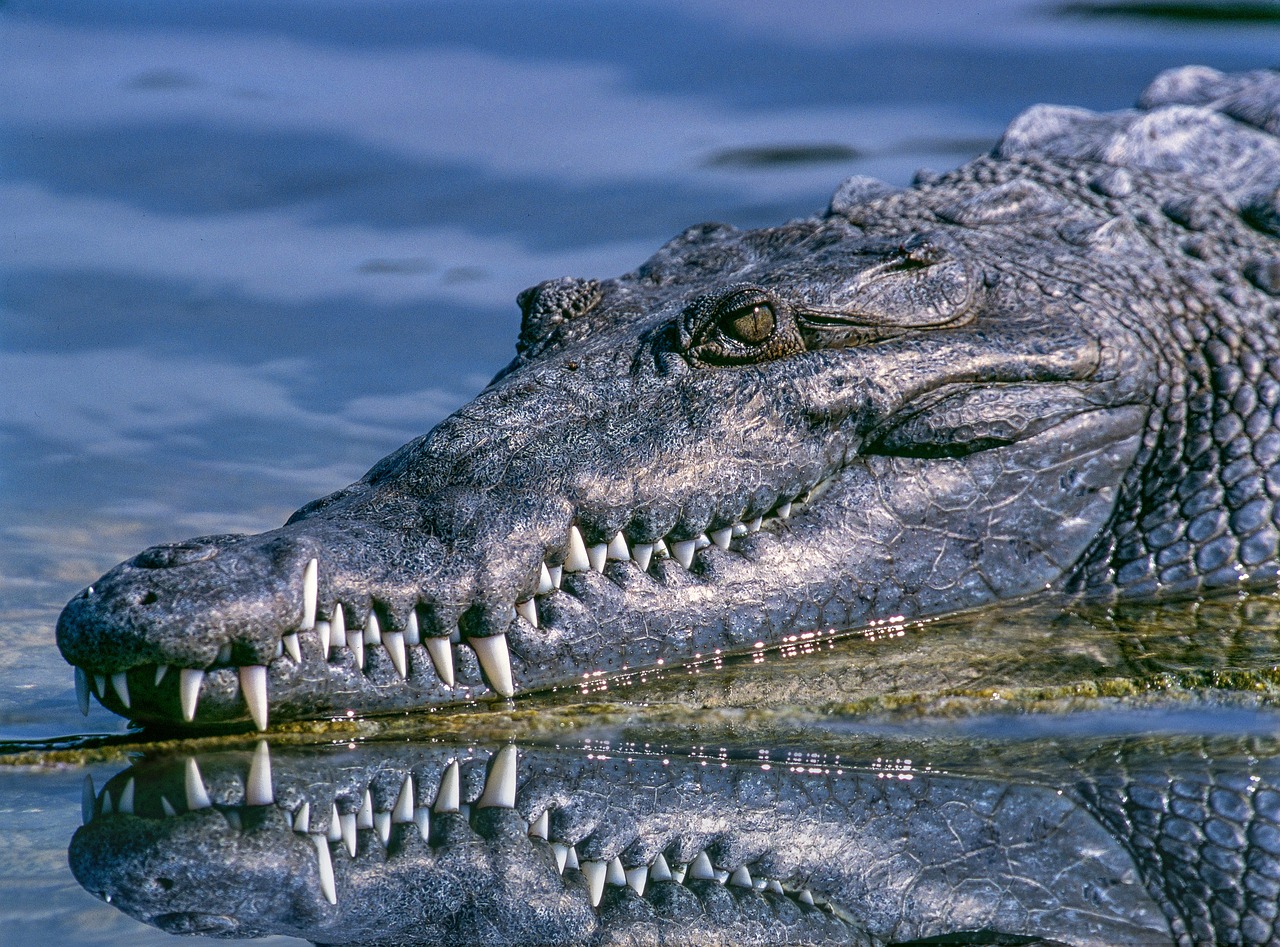Alligators are one of the most feared creatures in the animal kingdom. With their razor-sharp teeth and formidable strength, it’s no wonder people are cautious around them. But are alligators really as aggressive as we think they are? Let’s explore this fascinating topic and find out the truth behind their behavior.
Despite their intimidating appearance, alligators are actually quite timid creatures. They typically only attack humans if they feel threatened or provoked, such as if someone gets too close to their nest or if they mistake a person for prey. However, it’s still important to exercise caution around alligators and respect their space to avoid any potential incidents.
Alligators can be aggressive, especially during mating season or when they feel threatened. However, they usually avoid humans and only attack if they feel cornered or provoked. To avoid any potential encounters, it’s important to stay away from alligator habitats and never feed or approach them in the wild.

Are Alligators Aggressive? The Truth About These Reptiles
Alligators are known for their intimidating and fearsome appearance. They have sharp teeth, strong jaws, and a muscular body that can easily overpower their prey. But are alligators really as aggressive as they seem? In this article, we’ll explore the truth about these reptiles and their behavior towards humans.
Understanding Alligator Behavior
Alligators are cold-blooded reptiles that live in freshwater habitats such as swamps, lakes, and rivers. They are carnivorous and primarily feed on fish, turtles, birds, and mammals. Alligators are generally timid and shy creatures that avoid human contact. They are most active during the daytime, and tend to be more aggressive during breeding season, which occurs from April to June.
However, alligators can become aggressive if they feel threatened or cornered. They may attack humans if they feel that their territory or their young are in danger. It’s important to note that alligator attacks are rare, but they can be deadly if proper precautions are not taken.
What to Do If You Encounter an Alligator
If you happen to come across an alligator in the wild, it’s important to keep your distance and avoid any sudden movements. Never approach an alligator, as they can move very quickly on land and in water. If you feel that you are in danger, slowly back away and seek help from a professional wildlife expert.
Alligator Safety Tips
To reduce the risk of encountering an alligator, it’s important to follow these safety tips:
- Avoid swimming in areas where alligators are known to live.
- Keep a safe distance from alligators, especially during breeding season.
- Do not feed alligators, as this can cause them to associate humans with food.
- Keep pets on a leash and away from the water’s edge.
The Benefits of Alligators
Alligators play an important role in their ecosystem. They help to control the population of prey species, and their nesting mounds provide habitats for other animals. Alligator hides are also used for leather products, and their meat is consumed by some people.
Alligators vs. Crocodiles
Alligators and crocodiles are often confused with one another, but they are actually two different species. Alligators have a broad, rounded snout and are found in freshwater habitats. Crocodiles have a pointed snout and are found in saltwater habitats. Both species are dangerous and should be treated with caution.
Conclusion
In conclusion, alligators are generally shy and avoid human contact. However, they can become aggressive if they feel threatened or cornered. To reduce the risk of encountering an alligator, it’s important to follow safety tips and seek help from a professional wildlife expert if necessary. Alligators play an important role in their ecosystem and should be respected and admired from a safe distance.
Frequently Asked Questions
Here are some common questions people have about alligators and their behavior:
1) How do alligators behave in the wild?
Alligators are apex predators and play an important role in their ecosystem. They are generally solitary animals, but can be social at times, especially in the warmer months. Alligators are opportunistic feeders and will eat almost anything they can catch, including fish, birds, and mammals. They are also known to attack and eat other alligators.
While alligators are not typically aggressive towards humans, they can be dangerous if provoked or if they feel threatened. It is important to always keep a safe distance when observing alligators in the wild and to never feed or approach them.
2) What are some signs of aggressive behavior in alligators?
Alligators may display aggressive behavior if they feel threatened or if they are protecting their territory or young. Signs of aggression can include hissing, lunging, and tail thrashing. If an alligator starts to approach you, it is important to slowly back away and give the animal plenty of space.
It is important to remember that alligators are wild animals and should always be treated with caution and respect.
3) How often do alligator attacks occur?
Alligator attacks on humans are relatively rare, but they do occur. According to the Florida Fish and Wildlife Conservation Commission, there were 14 unprovoked alligator attacks on humans in Florida in 2020, with one fatality. It is important to always be aware of your surroundings when in alligator habitat and to follow all posted warning signs and guidelines.
If you do encounter an alligator in the wild, it is important to stay calm and slowly back away. Do not run or make sudden movements, as this may trigger an attack.
4) Can alligators be kept as pets?
No, alligators are not suitable pets. They are wild animals and require a specialized environment and diet to thrive. In addition, alligators can grow to be quite large and can pose a danger to both humans and other pets. It is illegal to keep alligators as pets in many states.
If you come across an alligator that you believe may be a pet or that is being kept in an unsuitable environment, it is important to contact your local wildlife authorities.
5) What should I do if I encounter an alligator in my backyard?
If you encounter an alligator in your backyard, it is important to keep a safe distance and to not approach the animal. Alligators can be attracted to food, so it is important to remove any potential food sources, such as pet food or garbage.
If the alligator is causing a nuisance or is posing a danger to humans or pets, it is important to contact your local wildlife authorities. Do not attempt to capture or relocate the alligator yourself.
Dealing with Dangerous Florida Alligators | Ultimate Killers | BBC Earth
In conclusion, while alligators are often portrayed as aggressive animals, the reality is quite different. Alligators are typically shy and will avoid human contact whenever possible. However, it is important to remember that alligators are still wild animals and can become aggressive if they feel threatened or cornered.
Furthermore, it is important for humans to be aware of their surroundings when in alligator habitats and to never approach or feed them. Doing so can lead to dangerous situations for both humans and the alligators themselves.
Overall, while alligators may have a reputation for being aggressive, it is important to understand their behavior and to treat them with respect and caution. With the right knowledge and precautions, humans and alligators can coexist peacefully in their shared habitats.


